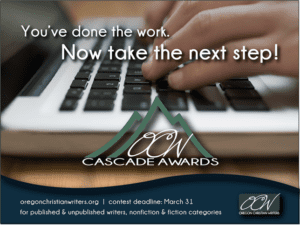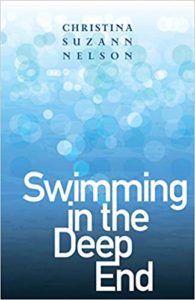Ten years ago, I was a new writer, finding my way in an overwhelming and confusing world. On the advice of a more seasoned writer, I entered a writing contest. It was my first experience with clicking the send button on, what felt like, a piece of myself. Imagine pulling a chunk of duct tape out of your hair. It was a lot like that.
About a minute went by before I realized I’d messed up and forgotten to make an important change. Goodbye entrance fee and any crumb of pride.
I didn’t win, final, or even come close to competing with the other, more prepared writers. But what I did do was learn. I took those judges’ comments and turned them into a kind of individualized writing class. I studied the corrections and looked up the terms and phrases I didn’t understand.
The following year, I came away without a final, but my scores had jumped. I could actually see I was improving.
As we head into contest season, I want to share a few things I learned along the way.
Read the rules
By their nature, rules are boring, but that submission you’ve slaved over shouldn’t be cast aside because you didn’t realize your margins were set to the wrong width. Take the time to read and apply the instructions sent out by the contest organizers.
Get your words in front of a fresh pair of eyes
When we read our own words, we are able to look past our errors, mentally correcting them as we go. A good critique group will help you grow as a writer, just as you can help the others in your group.
Hook them from the beginning and leave them wanting more
These words are the judges’ first introduction to your work. Take time on your first line. Brainstorm this one until you find a hook that engages readers and has them asking a question they have to keep reading to find the answer for.
In the same way, end your scenes and chapters in a way that keeps the judges wanting to read.
Edit, edit, edit
Don’t let a typo distract the judges from your submission. Never trust spellcheck to catch all your spelling errors.
Develop a checklist for your editing process that includes: watching for weasel words, passive language, shallow POV giveaways, telling, and adverbs.
Make every word count
For those writing novels, we know the 15 pages required to enter a contest are only a small sample of our story. Consider your future readers while evaluating these pages. The truth is, if you haven’t grabbed their attention by the end of 15 pages, they may not read further. As you study your submission, make sure each paragraph, sentence, and even word has a purpose on the page.
Finaling in or winning a writing contest can be a big boost to your confidence, and possibly your career, but even a non-finaling entry has value. Most contests have three judges read and evaluate each entry. Those comments, especially the items mentioned by two or three judges, give writers an insight into the areas they are doing well and those that need attention.
While God gives us passions to pursue, He doesn’t promise the road will be without potholes. I kept at it year after year. The contest finals and wins did come. They were rewarding and encouraging, but I have to say, those first few years made all the real difference.
This could be your year! What are you waiting for? Enter the Cascade Awards Writing Contest today!
 Christina Suzann Nelson was honored as the 2017 OCW Cascade Awards Writer of Promise. She is the author of If We Make It Home and Swimming in the Deep End (due out September 2018), both from Kregel Publications. Christina and her family live on a small farm in the beautiful Willamette Valley.
Christina Suzann Nelson was honored as the 2017 OCW Cascade Awards Writer of Promise. She is the author of If We Make It Home and Swimming in the Deep End (due out September 2018), both from Kregel Publications. Christina and her family live on a small farm in the beautiful Willamette Valley.









